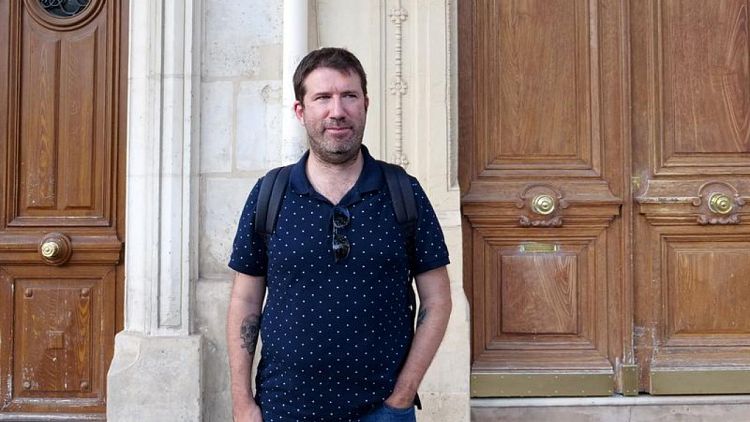By Michaela Cabrera and Ingrid Melander
PARIS - History teacher Christophe Naudin's life was shattered six years ago when what should have been a pleasant evening out at a concert became the target of jihadists in the most deadly attack in peacetime France.
Some 130 people were killed and hundreds wounded in the multi-pronged gun-and-bomb assault in Paris on Nov 13, 2015, on the Bataclan concert hall, six bars and restaurants and the perimeter of a sports stadium.
Naudin hopes that the trial of suspects that opens on Wednesday in Paris will help people better understand what happened that night.
"What matters to me is what the victims, their parents and loved ones will say, so that people truly understand," he said. "And I'd like this to be instructive: who were the terrorists, why did they do that, how was it organised."
Naudin, 45, managed to lock himself in a storage room with 20 other concertgoers during the attack. He emerged physically unharmed from his ordeal but has since then suffered from post-traumatic stress, with anxiety and pain in his arm, and says he now has a very pessimistic view on life.
He has been working with a therapist so that everyday things - like someone slamming a car door - do not trigger stressful reminders of the attack.
"I saw a lot of dead people, especially when we were evacuated ... I had to step over a body," he said.
FRANCE'S 9/11
Naudin will attend some of the hearings but says he does not care what will happen to the accused, including Salah Abdeslam, the 31-year old French-Moroccan who is the only surviving member of the group suspected of carrying out the attacks. The others blew themselves up or were killed by police during the attack.
In what will be an unprecedented, nine-months trial, held under high security, 19 other suspects stand accused of helping to provide guns and cars or of playing a role in organising what has been called "France's 9/11".
Six of those people will be tried in absentia and the verdict is expected in May, 2022.
Jean-Pierre Albertini, 76, has spent the six years since his 39-year old son Stephane died at the Bataclan trying to understand what happened and why. Tearfully, he recalls what his family and other victims have gone through.
"The day it affects you it's so violent, so sudden, it targeted people ... between 20-40-year olds, it's a generation that was massacred," he said. "In the trial - and that's why at first I didn't want to go - I know that what we'll hear are stories that will each be worse than the other."
He changed his mind after victims or relatives of victims of other recent attacks in France, including one targeting the Charlie Hebdo newspaper, told him that attending trials had helped them.
Angry with police failures in the years preceding the attack, Albertini says he hopes that understanding what happened could help fix things and prevent new ones.
But he does not expect the proceedings to provide any relief: "The trial won't resuscitate the dead."
Responsibility for the killings was claimed by Islamic State, which had called on its followers to attack France over its involvement in the fight against the group in Iraq and Syria.
The Nov. 2015 attacks, which were followed by other, less deadly ones, over the past few years, left deep scars on the nation's psyche.
"All of France will be watching the trial," Justice Minister Eric Dupond-Moretti told reporters.
